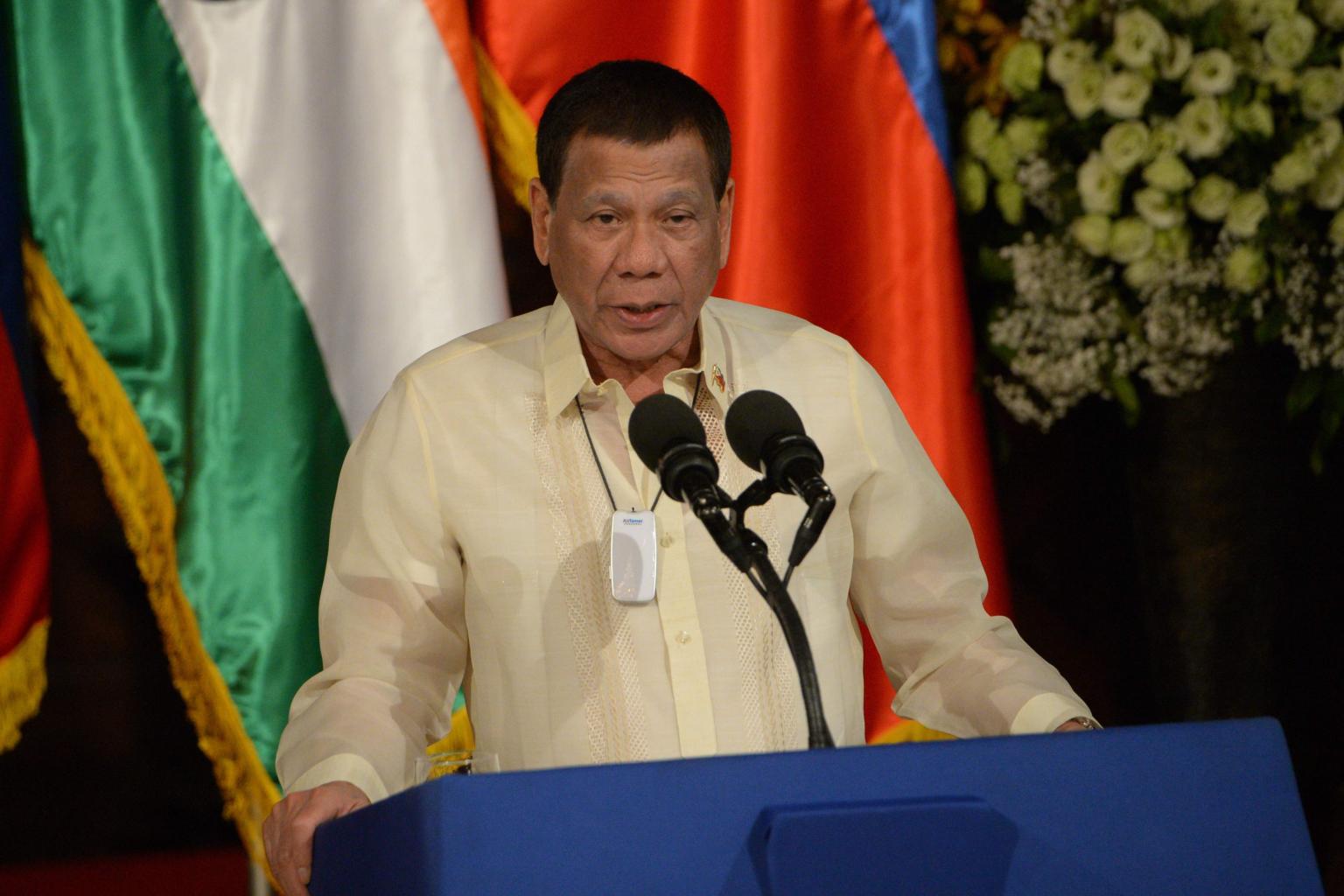Philippine decision to end military pact a ‘move in the wrong direction’, says US defence chief
Sign up now: Get insights on Asia's fast-moving developments

President Rodrigo Duterte had signalled the shift since his six-year term started in 2016 as he realigned his foreign policy toward China.
PHOTO: AFP
MANILA - US Defence Secretary Mark Esper has said ending a defence pact that has given the Philippines security cover for the past 20 years "would be a move in the wrong direction".
President Rodrigo Duterte's government formally informed the United States on Tuesday (Feb 11) of its decision to scrap the Visiting Forces Agreement (VFA), which has allowed thousands of American troops to rotate through military bases in the Philippines since 1998.
"As we try to bolster our presence and compete with (China) in this era of great-power competition, I think it's a move in the wrong direction, again for the long-standing relationship we've had with the Philippines, for their strategic location, for the ties between our peoples and our countries," Mr Esper told reporters en route to a Nato conference in Brussels on Tuesday.
He said the decision seemed "tied to some other issues".
"So again, I'm going to take this one step at a time," he said.
The pact remains in force. But the notice to terminate it, delivered to the US Embassy in Manila, starts a clock under which it will remain in effect for 180 days before lapsing.
Senate President Vicente Sotto said lawmakers could challenge Mr Duterte's unilateral decision before the Supreme Court on the ground that it encroached on the Senate's treaty-ratifying rights.
The Senate could also pass a resolution declaring that its concurrence was necessary for abrogating a pact like the VFA, he said.
But Mr Duterte will likely just dismiss a challenge from the Senate. Only three senators belong to the opposition party. The rest are either the president's party mates or allies.
He earlier ignored a Senate resolution asking him to reconsider his decision to scrap the VFA.
Justice Secretary Menardo Guevarra said the Supreme Court is also unlikely to intervene in a largely political decision.
Mr Duterte's spokesman Salvador Panelo said Mr Duterte "will not entertain any initiative coming from the US government to salvage the VFA".
Pointedly rebuffing Mr Esper, he said scrapping the pact was "a move in the right direction that should have been done a long time ago".
He said the decision to scrap the agreement was "anchored on (Mr Duterte's) policy… to chart an independent foreign policy, with our foreign relations with other states being based on national interests and general welfare".
It was not because the US refused to grant a visa to Senator Ronald dela Rosa, the early architect of Mr Duterte's violent war against drugs, he insisted.
Mr Guevarra, in a TV interview on Wednesday (Feb 12), disclosed that some of Mr Duterte's ministers disagreed with his decision.
"(But) whether we supported the president's position or recommended another option is now water under the bridge. One thing is clear: The president had everything he needed to know before he made up his mind to terminate the VFA," Mr Guevarra said.
He conceded that without the VFA, the other military pacts with the US that offered the Philippines protection against an invasion and other threats would be "practically useless" and "hollow".
But the Philippines could manage on its own, and could always hold military exercises with other nations, he said.
General Felimon Santos, the new military chief, also told reporters, "We could move on without the VFA."
"We managed to survive before, even without a bases agreement," he said.
Analysts warned that without access to the Philippines, the US will not be in a position to rapidly respond to threats from China in the South China Sea.
They say it will also weaken efforts to combat terrorists in the region.
The US has stepped up naval manoeuvres with the Philippines, as it seeks to counter China's growing challenge to the decades-long American naval dominance in the South China Sea.
It also keeps a small contingent of around 250 troops, mostly in the Mindanao island chain, where Islamic State in Iraq and Syria (ISIS) fighters are reportedly thriving.
"I think this was reckless and not really in the nation's interests… China and ISIS will be the biggest beneficiary of this," said political analyst Richard Heydarian.


